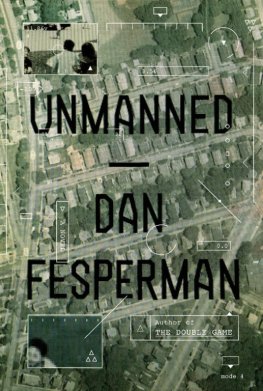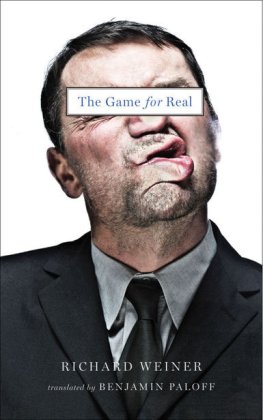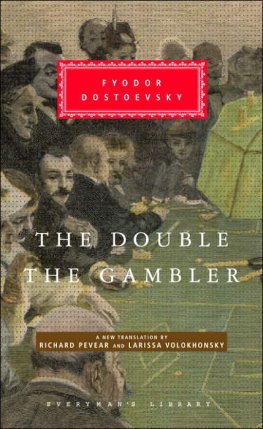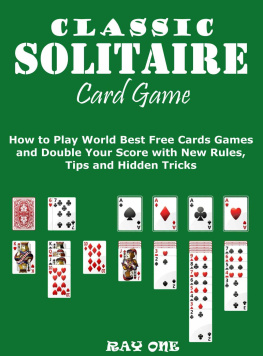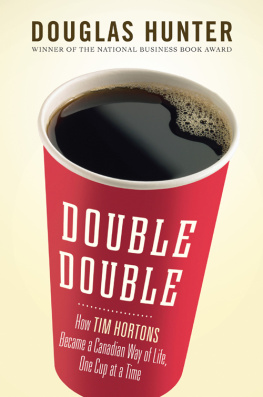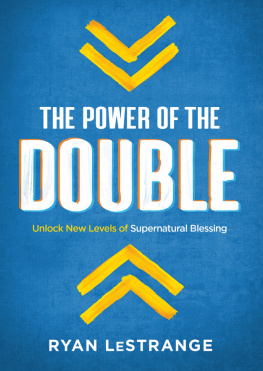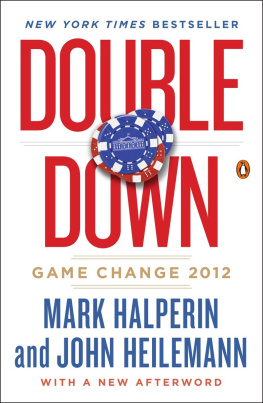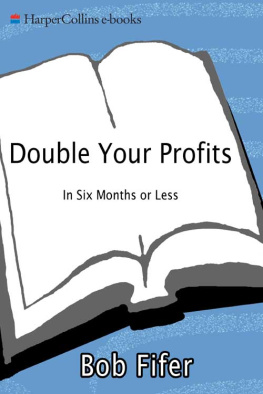Dan Fesperman - The Double Game
Here you can read online Dan Fesperman - The Double Game full text of the book (entire story) in english for free. Download pdf and epub, get meaning, cover and reviews about this ebook. genre: Detective and thriller. Description of the work, (preface) as well as reviews are available. Best literature library LitArk.com created for fans of good reading and offers a wide selection of genres:
Romance novel
Science fiction
Adventure
Detective
Science
History
Home and family
Prose
Art
Politics
Computer
Non-fiction
Religion
Business
Children
Humor
Choose a favorite category and find really read worthwhile books. Enjoy immersion in the world of imagination, feel the emotions of the characters or learn something new for yourself, make an fascinating discovery.

- Book:The Double Game
- Author:
- Genre:
- Rating:3 / 5
- Favourites:Add to favourites
- Your mark:
- 60
- 1
- 2
- 3
- 4
- 5
The Double Game: summary, description and annotation
We offer to read an annotation, description, summary or preface (depends on what the author of the book "The Double Game" wrote himself). If you haven't found the necessary information about the book — write in the comments, we will try to find it.
The Double Game — read online for free the complete book (whole text) full work
Below is the text of the book, divided by pages. System saving the place of the last page read, allows you to conveniently read the book "The Double Game" online for free, without having to search again every time where you left off. Put a bookmark, and you can go to the page where you finished reading at any time.
Font size:
Interval:
Bookmark:
Dan Fesperman
The Double Game
1
The Great Man himself was waiting for me on the phone. I say that without irony. In those days Edwin Lemaster was my hero, accomplished and unblemished, the very sort of fellow I aspired to be but never became. Even my wife, April, sensed the calls solemn importance, although shed never liked his books.
Genre fiction, she always sneered. Spies and secrets, lies and betrayal, blah blah blah.
You mean like life? Id counter, little knowing we were touching on the dynamics of our coming failure.
Yet on that long-ago sunny morning she smiled in excitement and stretched the phone cord to its limit, as if it were a lifeline that might pull me to safety. I grabbed it.
It was June of 1984, Orwells year of reckoning. The Cold War, after a brief thaw, had safely returned to subzero, and the Berlin Wall remained rock solid. I was twenty-seven, a Washington journalist on the make, poised at roughly the halfway point of my life up to now. Opening my mouth to speak, I felt like a flustered fan who had finally reached the head of the autograph line.
Uh, Mr. Lemaster? This is Bill Cage.
Bill, a pleasure. And call me Ed. My assistant Lenore forwarded your request. As you know, I dont usually give interviews, but your letter was quite convincing.
Of course it was. Id spent hours on it, agonizing over every word. In my latter-day career as a PR flack, nothing Ive written has ever matched its persuasive sincerity. Then again, I am no longer paid to be sincere.
Ill be coming down from Maine for the university lecture anyway, Lemaster continued, so why dont we give it a try?
I could barely draw breath to answer.
Why such excitement over a mere scribbler? I should explain. Not only was Lemaster the worlds premier espionage novelist, hed also been a spy for sixteen years at the height of the Cold War, back when spying was a glamorous profession. Our Le Carre, the American critics called him, although to my mind Le Carre was Their Lemaster.
But for me the appeal went further, and was deeply personal. Having grown up as a Foreign Service brat, I had come of age in the very capitals where Lemaster set his plots, at the very moment in history when they were unfolding. In those days, to walk the night streets of Berlin, of Prague, of Vienna, of Budapest, was to imagine that mysterious and exciting events were occurring just around the corner. And sometimes they were.
My father, also a fan, first put a Lemaster novel in my hands when I was twelve, as an antidote to a gloomy Saturday in Prague in 1968. Within days I was pillaging his shelves for the equally timely glories of Le Carre, Deighton, and McCarry. Eventually I turned to earlier classics by Maugham, Buchan, Ambler, and Greene. I even read the 1903 Erskine Childers book that supposedly gave birth to the modern spy novel, The Riddle of the Sands, its pages haunted by the knowledge that the author had eventually been hanged as a spy. My father had them all, a painstakingly assembled collection of more than two hundred espionage first editions, most of them signed by the author.
Whenever we moved-and in the diplomatic corps that happened about every three years-the books were my back-door passage to our new home, with the characters as my escorts. At a moment in history when other American boys were memorizing batting averages and home run totals, I was steeping myself in the lore of fictional spies. They were my Mays, Mantle, and Maris, and I aspired to emulate them. To be a spy was to survive by your wits in a dangerous foreign landscape, to seek to know everything about others while revealing nothing of yourself-an arrested adolescence in which you merited your countrys highest trust even as you traded in its deepest duplicity.
And the writer I always returned to with the greatest anticipation was Lemaster, who seemed more willing than the rest to take me into his confidence. He declassified the world I lived in, elegantly parting the curtains in all their varying shades of gray. So perhaps now you can understand why his promise of an interview left me momentarily at a loss for words.
Bill? he prompted. Are you there?
Great, I finally managed. That would be great.
Chancellor Stewart has kindly offered the use of his conference room. Shall we say four oclock?
Perfect. At least Id moved on from great.
In the meantime, Lenore will send you an advance copy of my latest. See you next week.
Wouldnt miss it for the world.
Wouldnt miss it for the world? Had I actually said something so trite? I blushed as I hung up, and for the next hour I half expected Lenore to call back to cancel. Then, determined to make the most of the opportunity, I began finding out all I could about Lemasters life and times.
The basics were already known to me: He was divorced, childless, eldest son of a Wall Street lawyer. Groton 51. Yale 55. Then two years as a Rhodes Scholar at Oxford, where he became an incurable Anglophile before joining the CIA in 1957. Served throughout Europe. Began writing novels while still an Agency employee. Left the CIA in 73, a month after his third book became a bestseller.
I figured there would be plenty more. But in those days before Google and YouTube it was far easier to maintain a low profile, and thats what Lemaster had done. I checked the clip file at the Post, the Lexis-Nexis database of publications from around the world, Whos Who, the Readers Guide to Periodical Literature. My search turned up loads of book reviews, but only a few profiles, and those were skeletal. Only Time magazine and Londons Guardian had interviewed him at length, and even their stories were mostly about his books and characters. When Time asked about his career in spying, Lemaster was charmingly dismissive.
Oh, I was quite unimportant. A cog in the machine, easily replaced. Anything I picked up for the novels came mostly from hearing what other fellows were talking about, the ones who were doing the interesting stuff.
Frustrated, I retraced my steps, this time combing the material like an old-fashioned Kremlinologist, alert for significance in the backwash of minor detail.
He hunted, but only for birds, never mammals. Fished, but only with a fly rod and he tied his own lures. Liked Bordeaux reds, Alsatian whites. A Red Sox fan who had never been to Fenway, yet had twice been to Yankee Stadium (and if that isnt the behavior of a natural-born spy, what is?). His thesis at Oxford was on the theme of courtly love in medieval poetry.
I looked up courtly love. It was all about a knights idealized, secretive devotion to a specially selected woman, never his wife, although possibly someone elses. He pledged eternal loyalty even if she never loved him back, and wrote her letters under a code name.
It sounded an awful lot like espionage.
At the appointed hour I appeared at the chancellors oaken chambers with a fresh notebook and a microcassette recorder. Folded in my pocket was a list of forty questions, winnowed from fifty-seven the night before. I wore a jacket and tie, which in those days occurred about as often as sightings of Halleys Comet.
Chancellor Stewart, who turned out to be a school chum of Lemasters, handled the introductions. His secretary kindly tried not to smile as I wiped a sweaty palm on my corduroys before shaking hands.
Lemaster was taller than I expected, even a bit imposing. But the craggy nose, the lined face, and the stray forelock, curling toward his brow like a comma, were exactly as advertised on his dust jackets. Both he and the chancellor wore tweeds. Stewart escorted us into the conference room, then departed.
Where would you like to begin? I asked nervously, feeling like a sycophantic fool.
Wherever youd like. He sounded as though he meant it. We dont even have to talk about the new book unless you want to, although my publisher would probably send me to the gallows for saying so.
Font size:
Interval:
Bookmark:
Similar books «The Double Game»
Look at similar books to The Double Game. We have selected literature similar in name and meaning in the hope of providing readers with more options to find new, interesting, not yet read works.
Discussion, reviews of the book The Double Game and just readers' own opinions. Leave your comments, write what you think about the work, its meaning or the main characters. Specify what exactly you liked and what you didn't like, and why you think so.


